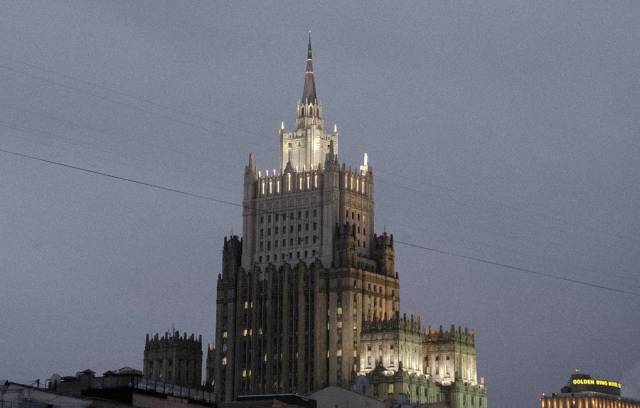Moscow. November 16. INTERFAX - The test, as a result of which the inactive Russian spacecraft "Tselina-D" was hit, is not directed against anyone, the fragments formed during it do not pose a threat to space activities, the Russian Foreign Ministry said.
"This event was carried out in strict accordance with international law, including the 1967 Outer Space Treaty, and was not directed against anyone. Taking into account the time of the test and the parameters of the orbit, the fragments formed during it did not pose a threat and do not create obstacles or difficulties for the functioning of orbital stations, spacecraft and space activities," the official representative of the Russian Foreign Ministry Maria Zakharova said in a comment on a number of aspects of space activities of Russia and other states.
She explained that "these fragments are included in the main catalog of the domestic space control system and immediately taken for appropriate support until their existence ceases."
"These actions were implemented within the framework of the planned activities of the Russian Defense Ministry to ensure defense capability, aimed at preventing sudden damage to the country's security in the space sphere and on Earth by existing and promising space assets of other states," the commentary says, the text of which is posted on the website of the Ministry of Foreign Affairs.
On Tuesday, Russian Defense Minister Sergei Shoigu said that the Russian military had conducted tests of anti-satellite weapons, but noted that they do not pose a threat to spacecraft. "We have really successfully tested a promising system. She struck the old satellite with jewelry. The fragments formed do not pose any threat to space activities," Shoigu said, answering journalists' questions during a trip to the Voronezh Region.
The Russian Defense Ministry also stressed that the fragments formed after the destruction of the satellite do not pose a threat to the ISS. According to the military department, an inactive Tselina-D spacecraft was destroyed during the tests.
"Previously, similar tests in outer space have already been conducted by the United States, China and India," the Russian military noted.
Over the past few years, the Ministry of Defense of the Russian Federation has reported successful tests of a new missile defense system at the Sary-Shagan test site (Kazakhstan). In particular, this year such launches, according to the Russian Defense Ministry, were carried out on September 17 and April 26.
Earlier, the US Space Command said that this new Russian anti-missile poses a challenge to US interests in near-Earth space. According to the US military, this Russian system is capable of destroying satellites in low orbit.
In July 2020, the commander-in-chief of the Russian Aerospace Forces, Sergei Surovikin, announced that Moscow's missile defense system would be strengthened with new anti-missiles.

